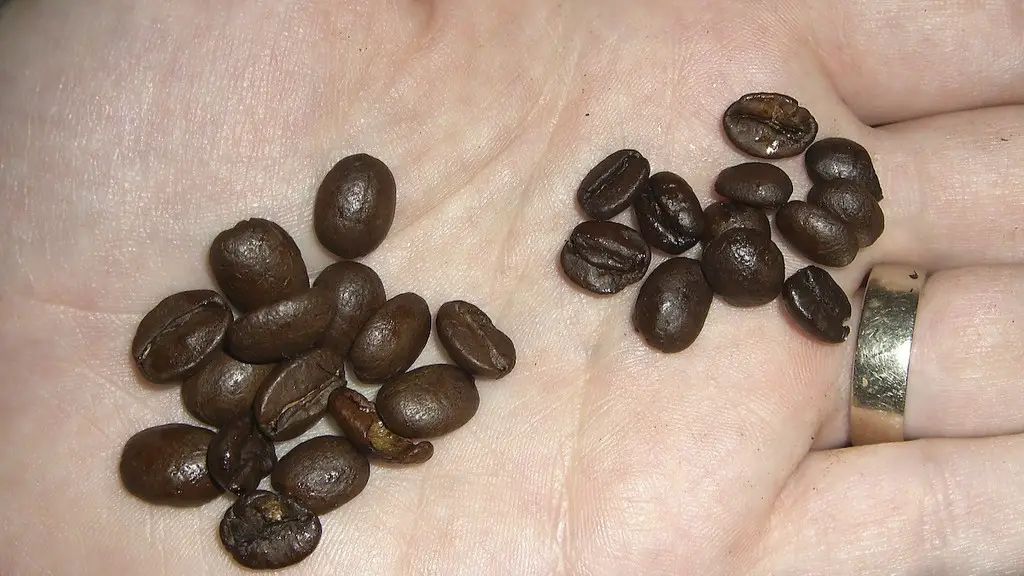Benefits of Coffee During Period
Many women know the power of caffeine to energize and elevate one’s mood. Ladies who acknowledge this fact often question if it is okay to drink coffee during their menstrual cycle. For women well-versed in managing their own menstrual health, the idea of drinking coffee can be a comforting and welcome relief for the physical and emotional effects of the cycle.
The answer to the question of “Is it okay to drink coffee on period?” is complicated. Nutrition and health specialists explain that coffee’s effect on a woman’s system during her period is highly individual and should be evaluated according to a framework of individual factors.
Experts explain that mild caffeine consumption might be beneficial and even aid in combating common PMS symptoms such as physical discomfort and fatigue. Caffeine can block brain receptors that interfere with our bodies absorption of adenosine – a neurotransmitter hormone often responsible for feelings of tiredness and feelings of a necessity to take a nap.
Coffee can be a great choice on days when bloating is particularly bad, as it can help to fight constipation and the related bloating, cramps and aches caused by it. Scientists noticed that caffeine increases motility in the lower intestine which, in turn, helps with constipation.
In general, caffeine can provide an energy boost, improve concentration and making a person more alert. Drinking coffee might help boost serotonin levels – the neurotransmitter responsible for a good mood and general well-being.
It’s essential to understand moderate consumption – up to three cups per day for most people’s health. This dosage is highly individual; depending on the economic and social situation of the individual, moderate consumption might vary from one to five cups of coffee or even more.
Side Effects of Drinking Coffee During Period
Some people might find that coffee increases their anxiousness and can induce headaches, increased heart rate and a jittery feeling. These effects can be more intense when women are experiencing low progesterone levels – which occur during the first part of their cycle.
In general, coffee CAN lead to dehydration and electrolyte imbalance, especially during menstrual cycles. Caffeine is a diuretic and it can deprive our body of minerals and electrolytes that it needs. The lack of these electrolytes and minerals can even contribute to problems like cramps and other PMS-related issues.
Some women might find that coffee isn’t helping with their menstrual symptoms or with cramps and other problems that can come during the cycle. In such a case, it may be best to avoid coffee during that time of the month and replace it with peppermint or ginger tea – those can provide comfort and stress relief without any negative side effects.
Coffee Alternative During Period
There are various beverage options for women to choose during their period. Any caramel or Latte made with almond, soy, oat, or coconut milk can be a great alternative to coffee, as there is no caffeine in those beverages.
For anyone looking for a hot beverage drink to get a healthy dose of antioxidants and to keep oneself warm, there is always a tea option. Shou Wu Cha, Green Tea, Chamomile Tea, Red Rooibos, and herbal teas containing ginger, cinnamon, and licorice root can provide comfort and relief from aches and pains.
Regular physical exercises can help to relieve fatigue and sluggishness associated with the cycle. Any physical activity increases endorphin levels and helps to combat insomnia during the premenstrual days.
Nutrition During Period
Nutrition plays a very important role during period. Women need to ensure to get enough Vitamin B and C in their diet as these are essential for hormonal balance and energy levels.
What one should eat and drink during her period depends highly on her own individual goals. It’s important to choose natural and unprocessed plant and animal foods.
Eggs, yogurt, oatmeal, quinoa, and spinach are a great addition to any diet as they contain ample amounts of iron and B vitamins, essential for PMS. Omega-3 rich foods like salmon, chia seeds, and flaxseed can aid in reducing premenstrual distress.
Amino acids like L-tryptophan, tyrosine and phenylalanine are also essential as they help neurotransmitters work better, reduce stress and improve mood.
In addition, plenty of water or herbal teas should be consumed during period to prevent dehydration and to flush out excess salt and toxins from the body.
Pain Management During Period
The ability to control the level of pain during a menstrual cycle is possible through various techniques. Different OTC medications are available to help with the pain but they are often not enough.
Acupuncture, chiropractic care, and massage therapy can help to reduce the pain associated with menstrual cramps, bloating, and other premenstrual signs.
Alternative treatments like aromatherapy, omega-3 supplements, and dietary changes can help alleviate the symptoms of premenstrual syndrome as well. Meditation and yoga can also assist in controlling the hormone fluctuations and emotional state fluctuations, associated with the menstrual cycle.
In general, exercising regularly and eating nutritious food can significantly help in reducing menstrual pain and improve the overall menstrual health.
Mental Health During Period
It’s important to recognize the strong link between mental and physical health during period. Research suggests that mental health during the menstrual cycle can manipulate the psychological symptoms associated with it.
During the premenstrual and postmenstrual period, it is important to involve oneself in activities that reduce stress and help with mood elevation.
Relaxation practices such as yoga and Tai Chi are a great way to connect with the inner self and achieve clarity and peace of mind. Exercise can also be beneficial and should be incorporated into the daily routine.
Apart from the physical activity, it’s also important to create a sleep schedule that would provide enough rest and quality night of sleep, needed to recharge the body and promote hormonal balance.
Dietary Strategies During Period
Since cravings are common during the period, it is recommended to plan ahead to prevent indulging in unhealthy, processed food.
It is important to remember that eating plenty of good quality carbohydrates can be helpful for the body. Complex carbohydrates like whole grain bread, quinoa, and beans are essential for better energy levels.
Fiber is also an essential nutrient during the period as it encourages the removal of excess estrogen from the body. Apples, pears, kale, and spinach are a great addition to the diet during the menstrual period as they are a great source of soluble fiber.
Protein intake should also be carefully monitored to reduce any negative effects associated with the cycle like fatigue and hormone imbalances.
Mineral and Vitamin Supplementation During Period
An individual’s diet should provide most of the necessary vitamins. Still, several minerals and vitamins should be added to the diet during the period to help one cope with it.
Magnesium is a very important mineral as it helps many bodily functions, including relieving of cramps. Vitamin B6 and B12 are also essential to assist in metabolizing the hormones that can help to explore the emotional symptoms associated with the menstrual cycle.
In addition to these vitamins, Sea salt, omega-3 fatty acids, and probiotics are also needed to create a nutrient balance.


